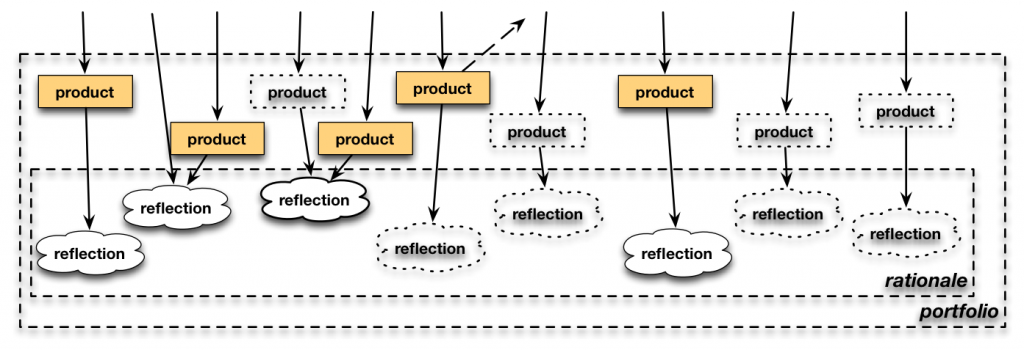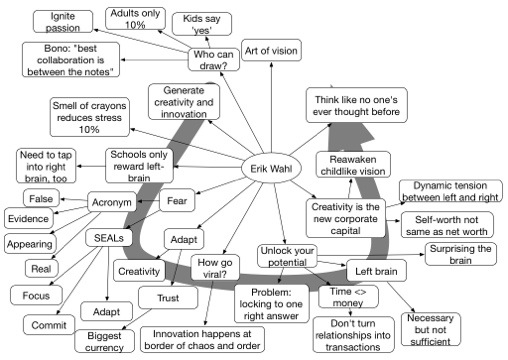Inspired by Dave Cormier’s learning contract, and previous work at learner-defined syllabi and assessment, I had a thought about learner-created project evaluation rubrics. I’m sure this isn’t new, but I haven’t been tracking this space (so many interests, so little time), so it’s a new thought for me at any rate ;).
It occurred to me that, at least for somewhat advanced learners (middle school and beyond?), I’d like to start having the learners propose evaluation criteria for rubrics. Why? Because, in the course of investigating what should be important, they’re beginning to learn about what is important. Say, for instance, they’re designing a better services model for a not-for-profit (one of the really interesting ways to make problems interesting is to make them real, e.g. service learning). They should create the criteria for success of the project, and consequently the criteria for the evaluation of the project. I wouldn’t assume that they’re going to get it right initially, and provide scaffolding, but eventually more and more responsibility devolves to the learner.
This is part of good design; you should be developing your assessment criteria as part of the analysis phase, e.g. before you start specifying a solution. This helps learners get a better grasp on the design process as well as the learning process, and helps them internalize the need to have quality criteria in mind. We’ve got to get away from a vision where the answers are ‘out there’, because increasingly they’re not.
This also ties into the activity model I’ve been talking about, in that the rationale for the assessment is discussed explicitly, make the process of learning and thinking transparent and ‘out loud’. This develops both domain skills and meta-learning skills.
It is also another ‘flip’ of the classroom to accompany the other ways we’re rethinking education. Viva La Revolucion!






